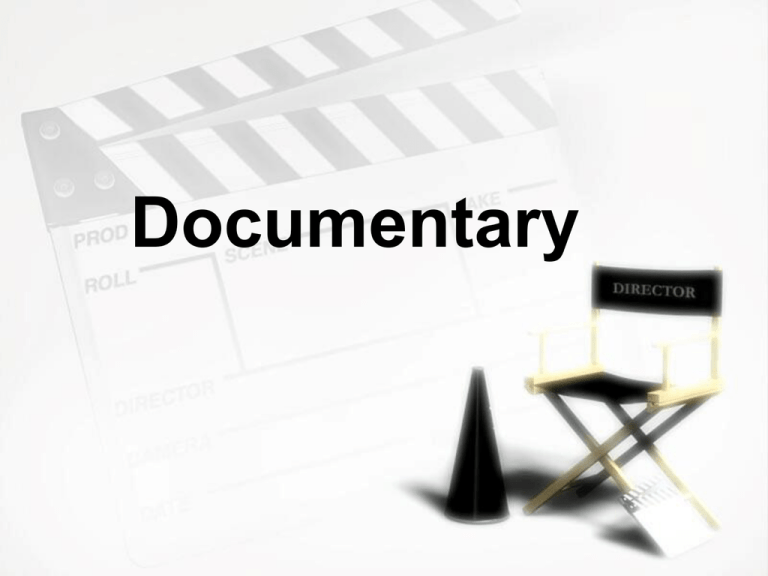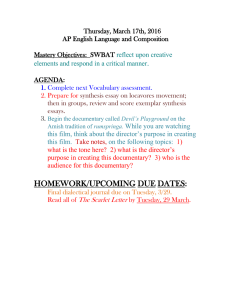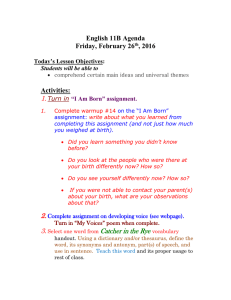Documentary
advertisement

Documentary Documentary » “Those films that that deal with historical, social, scientific, or economic subjects, either photographed in actual occurrence or re-enacted, and where the emphasis is more on factual content than on entertainment.” » Academy of Motion Picture Arts and Sciences Approach to Storytelling » » » » » » » » » » Narration (Fahrenheit 911) Reenactments/recreations (The Civil War) Animation (Bowling for Columbine) Filmmaker as part of the story (Paper Chasers) Interviews (Fog of War) Confessionals to Camera (Blue Vinyl) Archival Footage (Eyes on the Prize) Archival photos (4 Little Girls) Cinema Verite (Kurt and Courtney) Direct or Natural Cinema (Grey Gardens) Cinema Verite vs. Direct Cinema Direct or Natural Cinema » Becomes popular during the 1960’s » This style is: you film EVERYTHING » The object is to intrude as little as possible in order to capture the spontaneity and uninhibited flow of live events Criticism of Direct or Natural Cinema » Some feel that if the camera is not hidden the participants are still aware of it » If your event is boring you don’t have a film EX. “American Movie” trailer https://vimeo.com/9733536 Discussion Do you think it’s easier to produce a documentary or a fiction film? Why or Why not? Cinema Verite » The filmmaker PROVOKES an event » This style permits and even encourages interaction between the subject and the director. » This style is not about being fair. Discussion Can a documentary filmmaker be objective? Or does the very act of selecting topics and deciding how they should be portrayed become a personal statement by the filmmaker? Robert Flaherty » Some believe to be the founder of documentary filmmaking » His style is about culture and looking at different lifestyles. » In 1915 began filming Nanook of the North, which is a story of an Eskimo life. It was released in 1922. Ken Burns and Historic Documentaries » Like a biography it is a catchall term for films about an event that happened in the past. Example: World War II » In Historical Documentaries, you are at the mercy of old archival footage, photographs, drawings, and re-creations. » Ken Burns uses authentic materials of photos, folk music, present day locations, and the words used by people of that time. Basic Steps of Documentary Pre-Production » » » » » » » Brainstorm ideas and develop goal(s) Research story Choose interview subjects Choose equipment package Make a budget Write a production plan Hire Crew Items Needed for Your Documentary » A one page treatment of your concept. » One paragraph biography of your talent » Shot Sheet/Shooting Schedule » Dual-Column Script » Log » Completed Project



